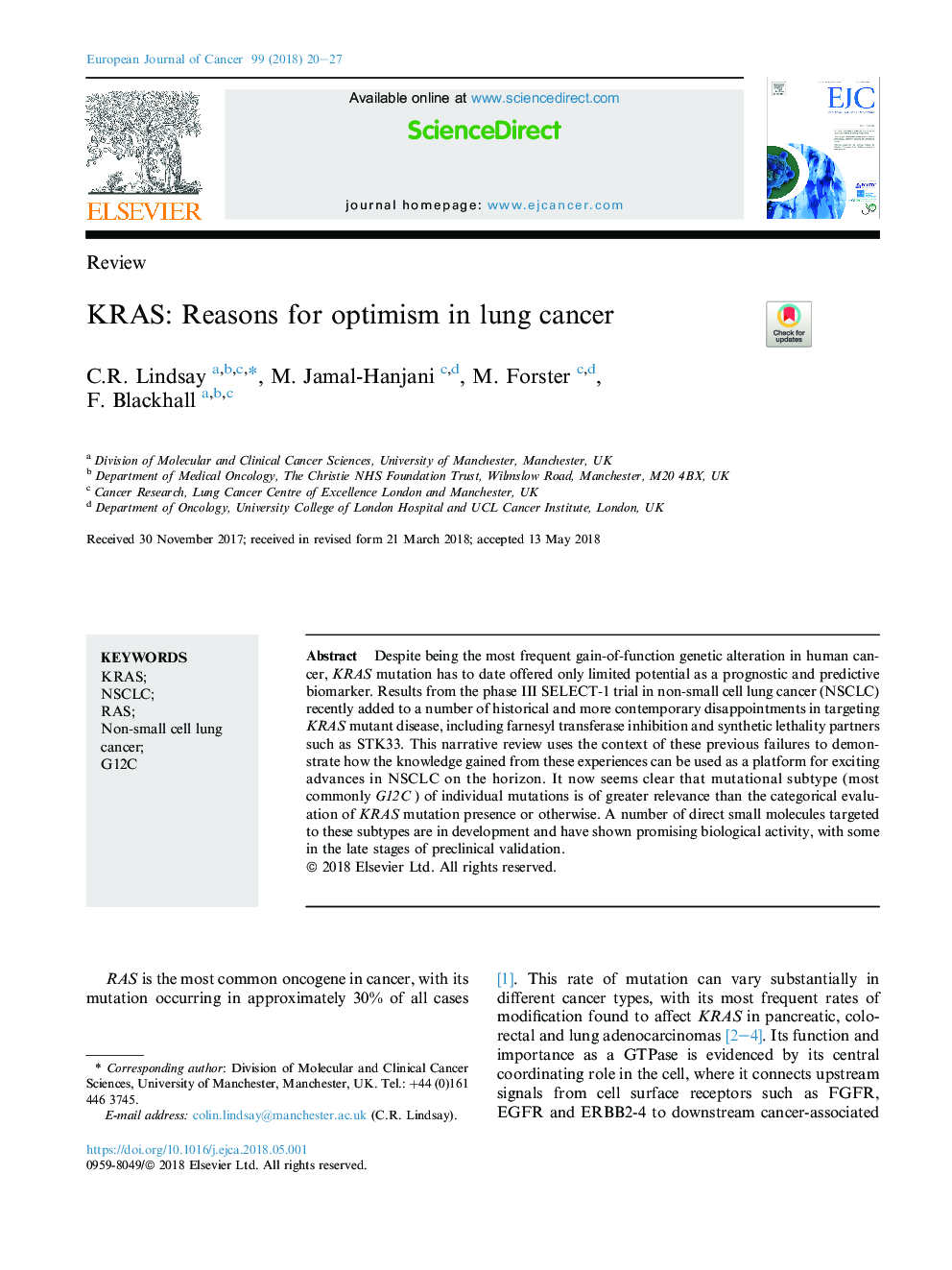| Article ID | Journal | Published Year | Pages | File Type |
|---|---|---|---|---|
| 8439342 | European Journal of Cancer | 2018 | 8 Pages |
Abstract
Despite being the most frequent gain-of-function genetic alteration in human cancer, KRAS mutation has to date offered only limited potential as a prognostic and predictive biomarker. Results from the phase III SELECT-1 trial in non-small cell lung cancer (NSCLC) recently added to a number of historical and more contemporary disappointments in targeting KRAS mutant disease, including farnesyl transferase inhibition and synthetic lethality partners such as STK33. This narrative review uses the context of these previous failures to demonstrate how the knowledge gained from these experiences can be used as a platform for exciting advances in NSCLC on the horizon. It now seems clear that mutational subtype (most commonly G12C) of individual mutations is of greater relevance than the categorical evaluation of KRAS mutation presence or otherwise. A number of direct small molecules targeted to these subtypes are in development and have shown promising biological activity, with some in the late stages of preclinical validation.
Related Topics
Life Sciences
Biochemistry, Genetics and Molecular Biology
Cancer Research
Authors
C.R. Lindsay, M. Jamal-Hanjani, M. Forster, F. Blackhall,
